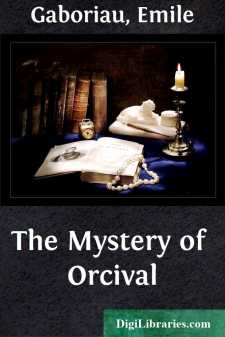Categories
- Antiques & Collectibles 13
- Architecture 36
- Art 48
- Bibles 22
- Biography & Autobiography 813
- Body, Mind & Spirit 142
- Business & Economics 28
- Children's Books 17
- Children's Fiction 14
- Computers 4
- Cooking 94
- Crafts & Hobbies 4
- Drama 346
- Education 46
- Family & Relationships 57
- Fiction 11829
- Games 19
- Gardening 17
- Health & Fitness 34
- History 1377
- House & Home 1
- Humor 147
- Juvenile Fiction 1873
- Juvenile Nonfiction 202
- Language Arts & Disciplines 88
- Law 16
- Literary Collections 686
- Literary Criticism 179
- Mathematics 13
- Medical 41
- Music 40
- Nature 179
- Non-Classifiable 1768
- Performing Arts 7
- Periodicals 1453
- Philosophy 64
- Photography 2
- Poetry 896
- Political Science 203
- Psychology 42
- Reference 154
- Religion 513
- Science 126
- Self-Help 84
- Social Science 81
- Sports & Recreation 34
- Study Aids 3
- Technology & Engineering 59
- Transportation 23
- Travel 463
- True Crime 29
Within an Inch of His Life
by: Emile Gaboriau
Description:
Excerpt
FIRST PART—FIRE AT VALPINSON
These were the facts:—
I.In the night from the 22nd to the 23rd of June, 1871, towards one o'clock in the morning, the Paris suburb of Sauveterre, the principal and most densely populated suburb of that pretty town, was startled by the furious gallop of a horse on its ill-paved streets.
A number of peaceful citizens rushed to the windows.
The dark night allowed these only to see a peasant in his shirt sleeves, and bareheaded, who belabored a large gray mare, on which he rode bareback, with his heels and a huge stick.
This man, after having passed the suburbs, turned into National Street, formerly Imperial Street, crossed New-Market Square, and stopped at last before the fine house which stands at the corner of Castle Street.
This was the house of the mayor of Sauveterre, M. Seneschal, a former lawyer, and now a member of the general council.
Having alighted, the peasant seized the bell-knob, and began to ring so furiously, that, in a few moments, the whole house was in an uproar.
A minute later, a big, stout servant-man, his eyes heavy with sleep, came and opened the door, and then cried out in an angry voice,—
"Who are you, my man? What do you want? Have you taken too much wine? Don't you know at whose house you are making such a row?"
"I wish to see the mayor," replied the peasant instantly. "Wake him up!"
M. Seneschal was wide awake.
Dressed in a large dressing-gown of gray flannel, a candlestick in his hand, troubled, and unable to disguise his trouble, he had just come down into the hall, and heard all that was said.
"Here is the mayor," he said in an ill-satisfied tone. "What do you want of him at this hour, when all honest people are in bed?"
Pushing the servant aside, the peasant came up to him, and said, making not the slightest attempt at politeness,—
"I come to tell you to send the fire-engine."
"The engine!"
"Yes; at once. Make haste!"
The mayor shook his head.
"Hm!" he said, according to a habit he had when he was at a loss what to do; "hm, hm!"
And who would not have been embarrassed in his place?
To get the engine out, and to assemble the firemen, he had to rouse the whole town; and to do this in the middle of the night was nothing less than to frighten the poor people of Sauveterre, who had heard the drums beating the alarm but too often during the war with the Germans, and then again during the reign of the Commune. Therefore M. Seneschal asked,—
"Is it a serious fire?"
"Serious!" exclaimed the peasant. "How could it be otherwise with such a wind as this,—a wind that would blow off the horns of our oxen."
"Hm!" uttered the mayor again. "Hm, hm!"
It was not exactly the first time, since he was mayor of Sauveterre, that he was thus roused by a peasant, who came and cried under his window, "Help! Fire, fire!"
At first, filled with compassion, he had hastily called out the firemen, put himself at their head, and hurried to the fire.
And when they reached it, out of breath, and perspiring, after having made two or three miles at double-quick, they found what?...












